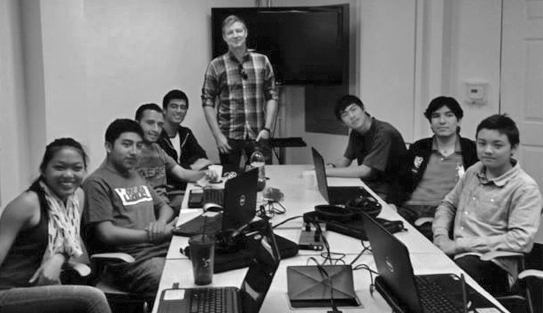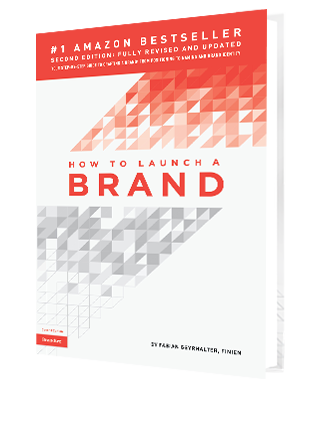Startup Advice
The Importance of Branding At Time of Launch For Tech Startup, B2C/Retail And B2B Company Founders
‘Is branding the key for a successful start-up?‘ is the topic for a speech I was asked to give at Internet Hungary this week. I could make it a 5 second speech and say ‘Yes, it is one of the most important factors,’ but lucky for me the topic is broader and will go deeper into the keys of creating a successful brand. Let me use this opportunity though to dive knee deep into this question as some brand elements are more important to certain types of companies at time of launch than to others:
No one shall skip the Brand Platform creation at the onset of a new venture, unless you want to compete on price, be boring and unattractive to work for, and are not keen on acquiring the right target audience at time of launch. You tackle the Brand Platform right after you draft your business plan (from fully fleshed out to napkin version – all are acceptable forms of business plans at this stage, depending on your own comfort level).

Launching with a meaningful and unique Name and Brand Identity Design seems like a no-brainer, a must for all entrepreneurs. If for whatever logical reason (budget not being part of that logic) you feel forced to launch with a sub-par name and logo, knowing you will have to go through a (more costly) re-naming and re-branding exercise upon showing first successes, it is the easiest to do for a tech startup or B2B venture that requires solely test users or relies on a very small niche audience, which will make it easier to educate them on this big and disruptive brand change down the road. Some Tech Startups (especially apps) are prototyping until the day of launch, making it an easy excuse to skip this essential step, whereas it is much more advisable to work on a prototype whilst formulating the brand platform, that way you are educating yourself about the target audience while you see them use the actual product, enabling you to create a meaningful brand that will not have to be rebuild soon thereafter. A win – win.
Needs for Brand Atmosphere Touch Points vary in importance and specifics from company to company with retail and other mainly offline B2C companies leading the list, E-Commerce and Tech Startups surviving off some basic, consistent touch points bundled with heavy E-Marketing template creations, while most B2B brands fall anywhere in-between, depending on their structure and audience. If bootstrap is your motto, these can be rolled out over time, making it essentially more pricey, but allowing you to spread the cost.
It only makes sense that ventures leading with digital need to make UI/UX Design part of their strategic brand implementation. Most companies – B2C/Retail and B2B – rely heavily on brand-centric (responsive) web sites to attract and convert leads of different types. For Online Retailers and Tech Startups where the web site also is the product, the prototyping should be addressed in parallel with the Brand Platform creation as it will educate the branding process as a whole. Some companies are able to save on development costs using existing WordPress templates (and such), but brand will still be key at launch.
To conclude, whenever a startup founder tells me (and they tell me all the time) “I can not afford branding at this early stage of my company formation” I reply with “No, you cannot afford not to brand at this early stage of your company formation. Unless you think a strong brand is worth less at time of sale or IPO than an ugly yet functional prototype.‘ This often marks the end of our conversation, until they call a few weeks later to get started with branding their new venture.
What I Learned From Being A Mentor To Startups (And 3 Ways You Can Benefit From It)
Over the past 2 weeks I’ve given 4 presentations on ‘How to Launch a Brand‘, coinciding with our upcoming book release of the same title, which consisted of a combined 3 hours of Q&A with startup entrepreneurs ages 16 to approximately 54. I also conducted 12 one-on-one mentoring sessions. I felt it was time to reflect and share what I’ve learned through talking with these ambitious and energetic innovators and disruptors:
1. Pitch Perfect Heart & Soul
When you have only 60 seconds to pitch – and there’s a whole lot to convey in that time – it seems to make sense to learn it by heart. Wrong. If you present your passion project it should not sound like it comes from an automated machine. It will lack heart and soul…and the most important asset: your pitch will be missing you. The same holds true for anyone giving any sort of presentation. Know your stuff and definitely prepare your speaking points, but don’t read it all off your notes or have it memorized sentence-by-sentence. You will never be able to truly connect with your audience that way. In whatever business presentation you find yourself in, your audience will always want to get to know a little bit about the person behind the speech.

How To Launch a Brand – Founder Institute 06/24/2013
2. Pretend You Know Nothing
A defensive person in an advisory conversation is most unappealing. As a trained Graphic Designer, this lesson took me over a decade to learn and almost another one to perfect. If you walk into a conversation with an open mind, ready to listen and learn, thinking to yourself that you know nothing (or ‘You Suck‘ as a fellow mentor at The Founder Institute put it), you will allow yourself to absorb. What you do with the gained knowledge is up to you in the end – it’s a take it or leave it. If you are never open to taking it in the first place you will only be left out.
3. Be Bold And Seize The Moment
You listened to a speaker, you leave the room inspired and get started implementing his or her advice. Or you could walk up to them, introduce yourself, and start a conversation. Or connect via LinkedIn the day after and request a quick call. It happens all the time. Approximately 20% of attendees connect with me and ask for a couple of minutes of my time. Could I say no? Yes. Is there a big chance I won’t? Yes. All it takes is courage. Ask and you shall receive. The next generation is doing this, they are the bold connectors and will soon steer the ships we all think we are captains of. Let’s adapt that boldness.

Santa Monica Youth Tech Program Mentoring – Coloft 06/25/2013
Stay in the loop about future events and additional thoughts on brand launches by following us on Facebook.
CATEGORIES: Blog Startup Advice
The top 5 must-do’s for your tech startup brand launch
![]() Jason Calacanis, founder of Silicon Alley Reporter, Engadget, TechCrunch 50, LAUNCH, This Week in Startups as well as his new venture, Inside.com, asked me ‘What are the most important things you’ve learned about launching?‘ Here is what I wrote him:
Jason Calacanis, founder of Silicon Alley Reporter, Engadget, TechCrunch 50, LAUNCH, This Week in Startups as well as his new venture, Inside.com, asked me ‘What are the most important things you’ve learned about launching?‘ Here is what I wrote him:
1. PICK A PROCESS
There are many processes to launching your tech startup. Choose one that works for your personality, budget and within the culture you are about to create.
2. TEST AND FAIL
Test and fail and test and fail. You should invest in creating your brand only once you really understand your target audience’s behavior and true needs.
3. LAUNCH AS A BRAND
Launch as a brand, not a startup that may develop into a brand. Launch by design. Design relates to the process you have to adhere to, but furthermore it truly is design that holds the key to early brand success. Graphic design, brand identity design, and web design will set your offering apart at the time of launch.
4. TAKE NAMING SERIOUSLY
Naming is crucial. You can’t change the name of your kid once they are in puberty. The name you choose at launch will remain with the brand forever, so don’t settle for a placeholder name that just happened to make it into beta because the domain was available. It’s an art, science, and legal matter, so make sure it doesn’t get overlooked.
5. LISTEN SELECTIVELY
‘Opinions are like @**holes, everybody has one‘ – choose wisely whom you listen to, which opinions you implement, whom you exclude from certain conversations and why. Have a ‘stakeholder opinion plan‘ in place from the start to make it easy for you to adhere to and eliminate the unease of hurting people’s feelings or having to re-do certain phases of your project because you did not listen to the right people at the right time.


